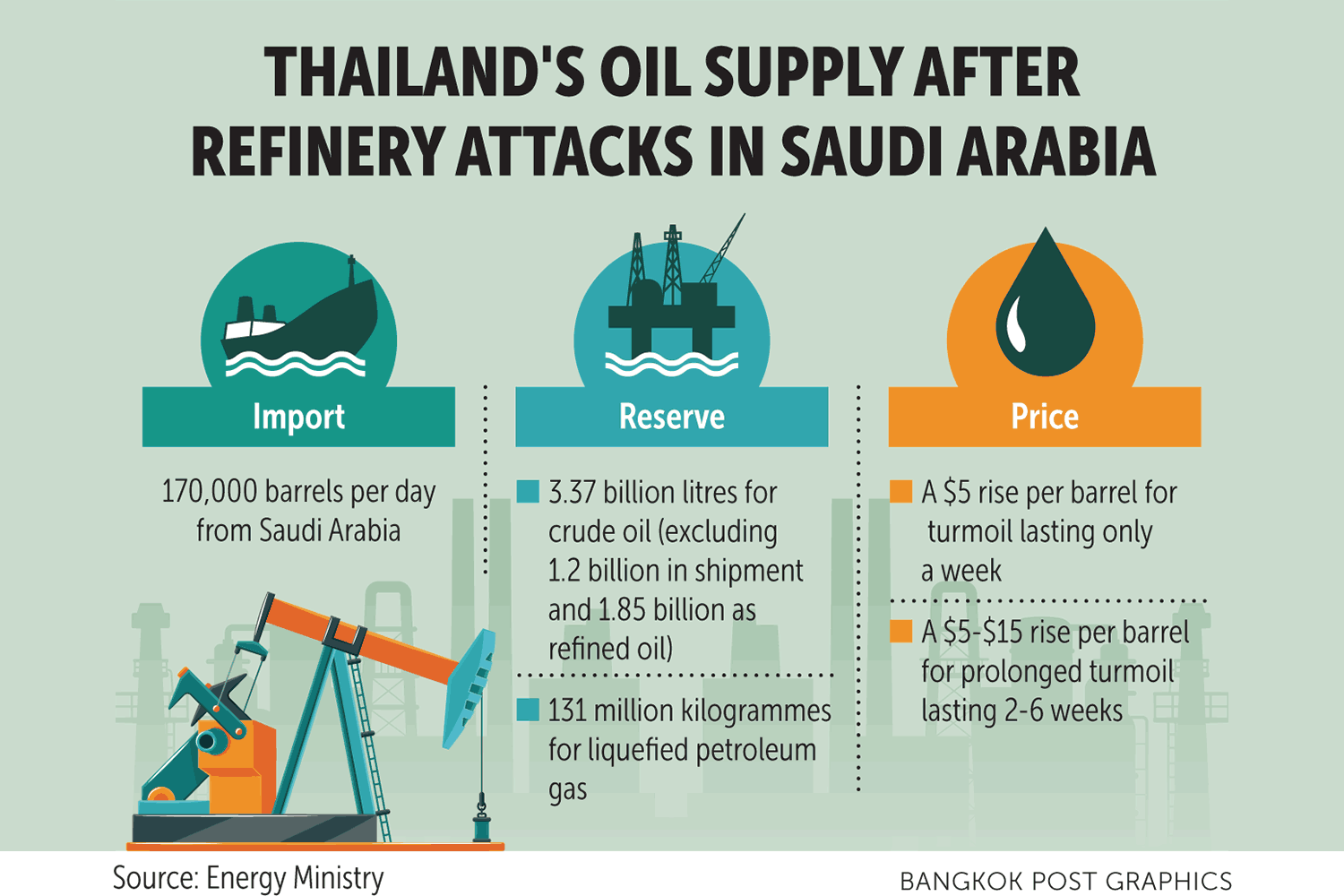The Energy Ministry plans to use 1.5 billion baht from the state Oil Fund to support local oil prices, expected to rise one baht per litre in the short term after 10 drones struck Saudi oil facilities on Saturday.

The plan is an urgent agenda item for the Energy Policy Administration Committee (Epac) meeting on Tuesday, said Energy Minister Sontirat Sontijirawong, who will chair the meeting.
"The ministry is monitoring global oil prices and estimating whether the impact will be short-term," he said.
"Brent crude oil rose by 12% to US$71 per barrel when the oil market opened on Monday, but the price decreased to $67 in the afternoon, which was a good sign."
Mr Sontirat said a $5 uptick in global oil prices results in an increase of one baht per litre in local retail prices.
The 1.5-billion-baht plan will be doled out as price subsidies to local motorists.
The ministry reported the state Oil Fund has cash on hand of 39.4 billion baht, adequate to deal with rising global oil prices.
Thailand has reserves for crude oil of 54 days, totalling 3.37 billion litres, and 23 days for liquefied petroleum gas, totalling 131 million kilogrammes.
Thailand imports roughly 1 million barrels of crude oil from overseas, of which 170,000 barrels per day are shipped from Saudi Arabia, accounting for 16% of the total.
On Sept 14, there were reports of 10 drone strikes on two oil refineries in Saudi Arabia, hitting Abqaiq and Khurais. Houthi rebels in Yemen have claimed responsibility for the attacks.
Brent crude oil skyrocketed 20% immediately after the oil market opened on Sunday night, then declined on Monday.
The Abqaiq refinery is the world's largest oil refinery with a capacity of 8.45 million barrels per day. Saudi Arabia, the largest oil exporter in the world, ships about 9.8 million barrels per day, of which 5.7 million is from two refineries.
Pimchanok Vonkorpon, director-general of the Trade Policy and Strategy Office (TPSO), said two scenarios have been mapped out for whether the attacks lead to prolonged chaos in Saudi Arabia or just a hiccup.
For Thailand, both scenarios will increase the country's inflation rate only 0.01%, but the baht will gain further from this turmoil and inflation for 2019 would be pressured to stay below 1%.
Ms Pimchanok forecasts the country's export sector in 2019 will potentially rise another 0.1% as oil prices are projected to increase from this turmoil, with many exported products benefiting from the chaos, such as petrochemicals and plastics.
According to the TPSO, global oil prices in September will increase to $65 per barrel, declining to $62.5 in the fourth quarter, based on a short-term impact.
The worst-case scenario sees oil prices staying at $65 per barrel from September to December, which is still less than $69.4 in the same period last year, said Ms Pimchanok.
Krungsri Research forecasts the WTI crude oil price could breach $70 in the coming weeks.
This will increase risk premiums in the oil market and push up long-dated futures prices.